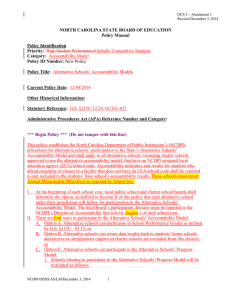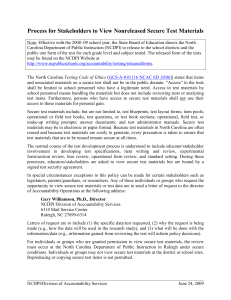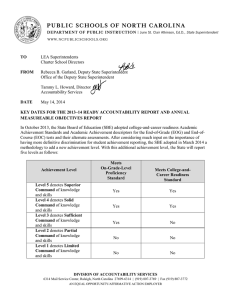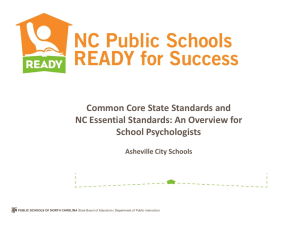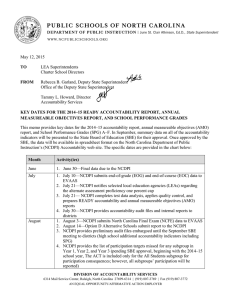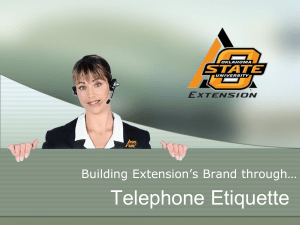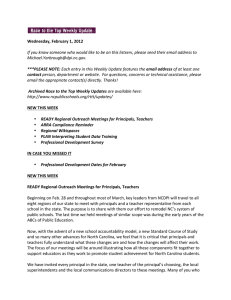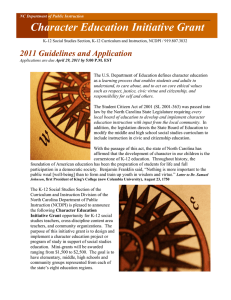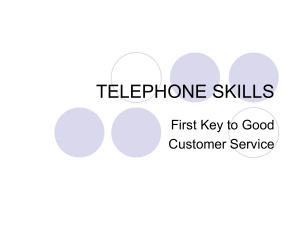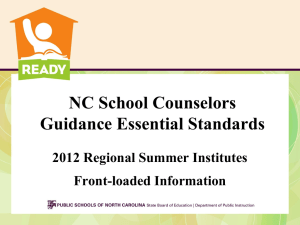Assessment Literacy - Public Schools of North Carolina
advertisement
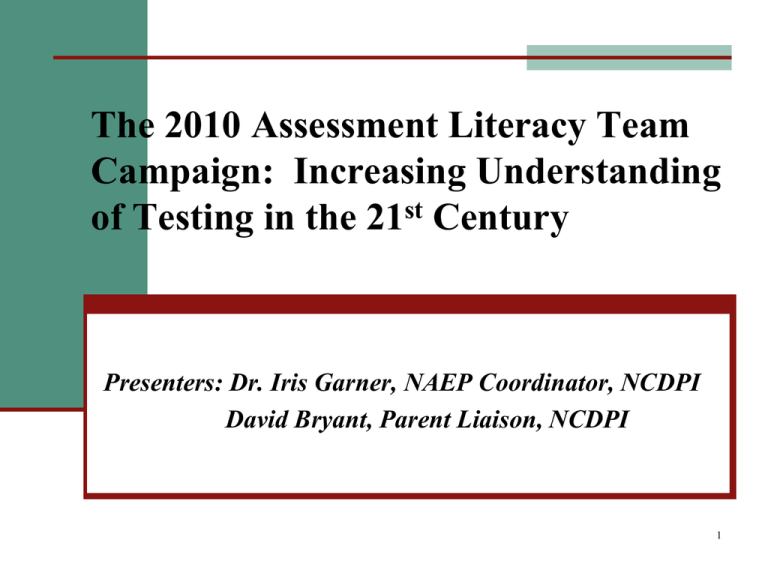
The 2010 Assessment Literacy Team Campaign: Increasing Understanding of Testing in the 21st Century Presenters: Dr. Iris Garner, NAEP Coordinator, NCDPI David Bryant, Parent Liaison, NCDPI 1 Presentation Objectives To identify key components of effective communication To communicate strategies and resources for strengthening assessment literacy in the public schools of North Carolina 2 Objective #1 Effective Communication What is communication? The exchange of information between people, e.g. by means of speaking, writing, or using a common system of signs or behavior A spoken or written message Communication can make one feel ? Resentful 4 Communication Franklin D. Roosevelt: Be sincere, be brief, be seated John Marshall: To listen well is as powerful a means of communication and influence as to talk well Stephen Convey: Seek first to understand, then to be understood George Shaw: The problem with communication …is the illusion that it has been accomplished Communicaton Communication Communication Accountability Participants: Communication is ________________________________________ ________________________________________ ________________________________________ ________________________________________ _______________________________________ . Objective #2 Communicate Strategies and Resources Effective Communication Checklist Logical Concise } Available Resources Communication Formula LC(R) + A= Effective Communication Research Open your “inbox” (Available ) Model yourself after others Find third alternative solutions (Resource) Avoid “identify theft” Try something new Know your audience (Logical) Laugh at least once a day By Stephen Covey, 7 Ways to Come Together/USA Today Communication ! SBE Policy Website --Logical Electronic Policy Manual Table Grouped according to the five strategic priorities of the NC State Board of Education Organized by priority, category, Policy ID Number SBE Policy Website Snapshot State Report --Concise Comprehensive look at student performance over time Overall Results Achievement Level Snapshot State Report Resource North Carolina General Statutes Division of Accountability Services The “For Parents” website Testing Policy and Operations Regional Accountability Coordinators (RACs) Local Test Coordinators Division of Exceptional Children Policy, Monitoring and Audit Dispute Resolution Consultants Division of Accountability Website -Available Web-based Information Available 24/7 Frequent Updates Released Forms Hot Topics Assessment Briefs Understanding Student Reports Division of Accountability Website Sources of Inquiries Telephone calls E-mail Letters State Superintendent’s Office State Board of Education NCDPI’s Main Switchboard Legislators (State and Federal) 21 Best Practices Communicating to Parent Know that you may not be able to accurately ascertain the caller’s actual identity. Limit your comments to questions designed to help you understand the details of their concern. (Concise) Assure them that you are hearing their concerns but also understand that the caller may not have complete information or may not provide you with all the details. (Available) Remain neutral in your comments. (Resource-based) 22 Best Practices Communicating to Parent Encourage the caller to work through the leadership structure in their school and school system. Many calls involve issues that are local and over which the Department of Public Instruction does not have authority. Examples: Student school assignment, student grades and placement, student discipline, local policies regarding promotion and retention decisions and the like. After screening information, direct the caller to the appropriate division within the agency. If the caller says that he or she has tried to engage the leadership structure in their school or school system without success, offer to share the caller’s concerns with the local school district. 23 Best Practices Communicating to Parent Make no promises Share the concern with the appropriate local school district superintendent’s office. When responding to parents or guardians, be sure to provide contact information that includes your name and title. 24 What This Means Logically Organized Communication Concise and understandable Communication Resources Availability 25 Communication ! Contact Information Dr. Iris Garner NAEP Coordinator Accountability Services Division, NCDPI 919.807.3768 igarner@dpi.state.nc.us David Bryant Parent Liaison/Education Consultant Accountability Services Division, NCDPI 919.807.3775 dbryant@dpi.state.nc.us 27 QUESTIONS 28 "Communication is the real work of leadership." Nitin Nohria
